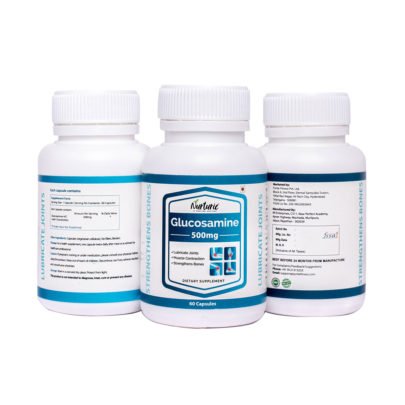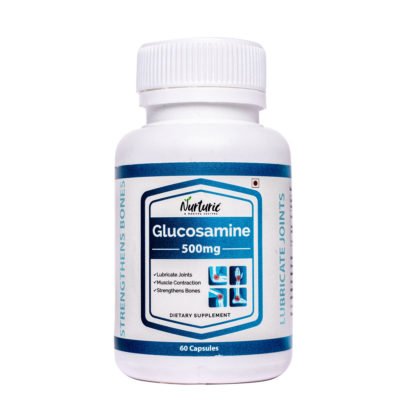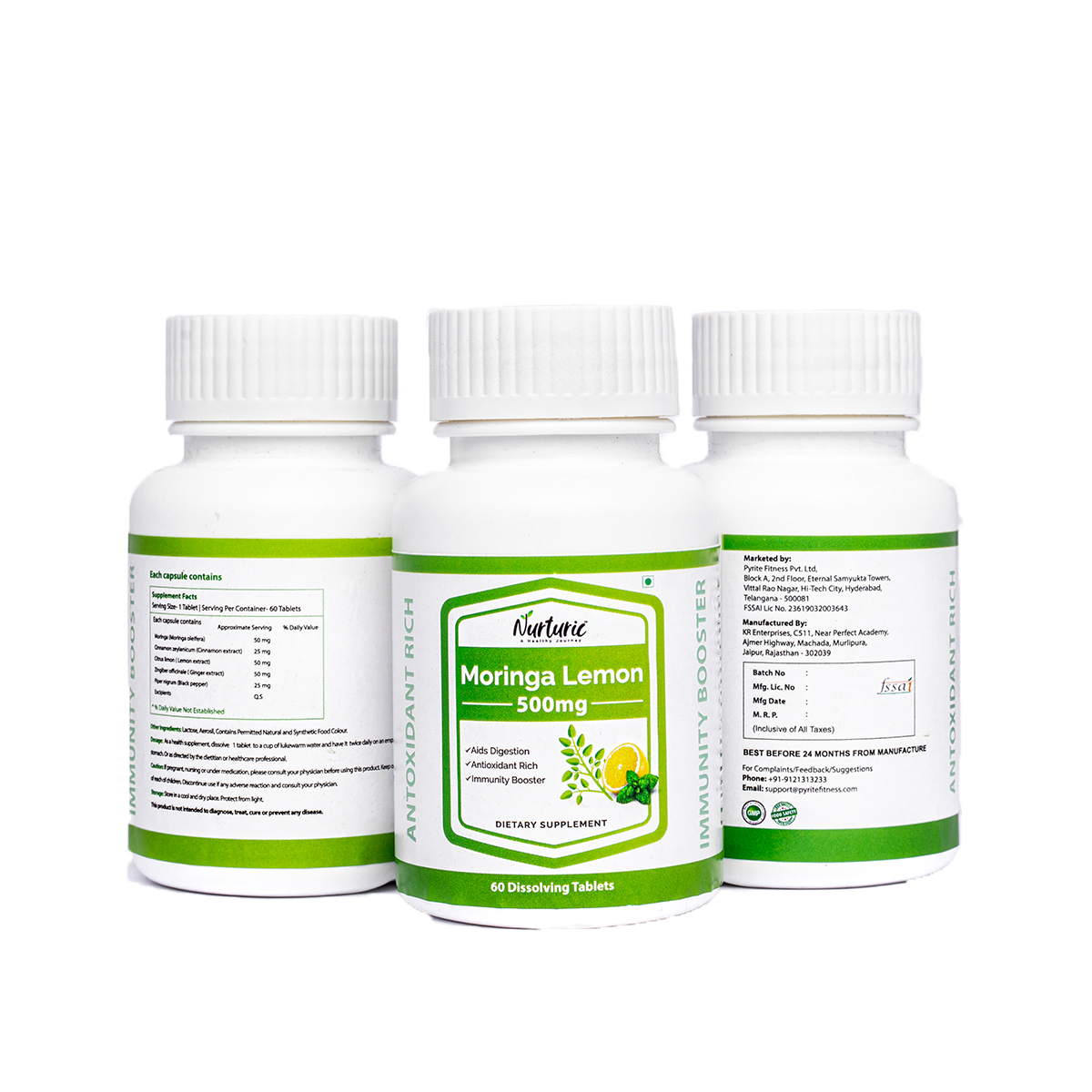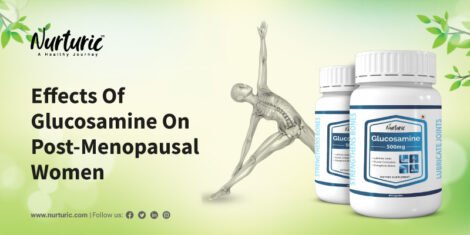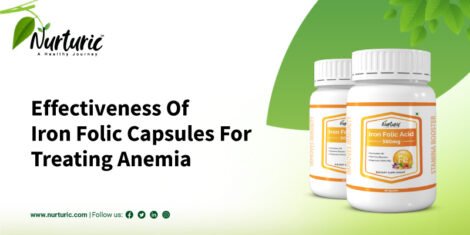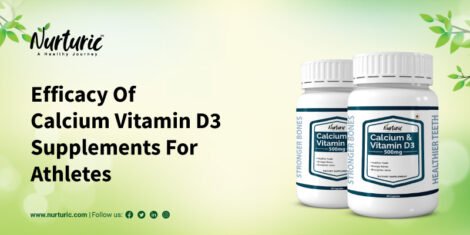- You have no items in your shopping cart
- Subtotal: ₹0.00
There will be no shortage of new trends when it comes to nutrition and leading a healthy and active lifestyle. For ages, people have used various fruits, herbs, roots and seeds to treat various ailments. Grape seed is one of those tools with numerous advantages. Grape seed extract is a fantastic natural dietary supplement, which is high in nutrients and made by pulverizing grape seeds. After separating the seeds from grapes, they are dried and crushed, eventually becoming an extract. Its primary constituents are polyphenols such as oligomeric proanthocyanin complexes, a powerful antioxidant that accounts for most of the benefits of eating grape seeds.

Procyanidins and gallic acid are the most potent anticancer compounds found in grape seed extract. It is a polyphenolic compound with a high concentration of plant flavonoids found in many foods we eat, including peanuts, berries, and grapes, as well as the powerful antioxidants needed to make a difference in our health. Let us now look at how grape seed extract is used to treat cancer and the other health benefits of grape seed extract.
How Grapeseed is Effective in Treating Cancer
Cancer occurs when DNA cells are altered. Grape seeds are effective because of a kind of active ingredient known as oligomeric proanthocyanidins (OPCs). These compounds, which have a high bioavailability and are easily absorbed by the body, help inhibit the growth of certain tumors and attack cancer cells. However, consuming antioxidants, such as grape seed extract, may reduce the risk of various types of cancer and aid in the reduction of free radical damage, which allows some cancer cells to take hold, develop, and spread.

Grapes, which are high in various plant compounds, protect cells from several types of cancer. Grapes contain significant amounts of resveratrol, which reduces inflammation and inhibits the growth and spread of cancer cells in the body. Aside from that, large amounts of quercetin, anthocyanins and catechins found in grape seed extracts reduce the risk of colon and breast cancer.
Grapeseeds are high in procyanidin, which acts as antioxidants and aromatase inhibitors that suppress estrogen production and inhibit the growth of estrogen-dependent breast cancer. When breast cancer cells are treated with grape seed extract, two transcription factors, cyclic AMP-responsive element-binding protein-1 (CREB-1) (which binds to specific genes and turns them on or off) and glucocorticoid receptor, are down-regulated (GR). These two factors would generally result in regulating aromatase gene expression and reduce the risk of cancer.
Resveratrol And Procyanidins: The Key Compounds
Grape seed contains a veritable rainbow of different antioxidants. So far, it has been narrowed down to two primary suspects—the two particular compounds that could help reduce the chances of and slow cancer progression with grape seed.
- RESVERATROL – This substance lowers the likelihood of harmful inflammation and free radical damage. Furthermore, it slows or even stops the development of tumours, particularly those caused by hormonal imbalances (prostate or breast cancer).
- PROCYANIDINS – These antioxidants, like resveratrol, modulate inflammation and free radical damage. It includes slowing down and lowering the likelihood of cancers and tumours.
Now that you’ve seen how grapeseed can help with cancer treatment, let’s look at some other grape seed benefits.
Incredible Health Benefits Of Grapeseed
Grapeseed extracts are an excellent vitamin C and E source, an antioxidant that helps prevent cell damage and strengthens our immune system. Europeans have used it for centuries for its remarkable effects in healing skin and impaired vision, and it is high in cholesterol-lowering polyunsaturated fats.
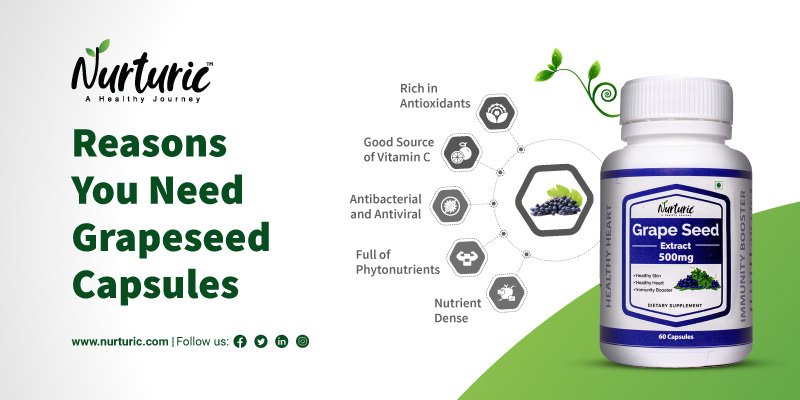
Grapeseed is a powerful antioxidant, owing to its high OPC content, and protects the body from the harmful effects of free radical damage. They are high in plant compounds and nutrients, which benefit your overall health and well-being. Grapes are the best choice for people with diabetes because they have a low glycemic index and help with weight loss. A variety of antioxidants, such as resveratrol, reduce inflammation, improve heart health, and lower cancer risk. Let us dig deeper into the benefits.
Rich in Antioxidants
Grapes are high in antioxidants and a variety of phytonutrients ranging from carotenoids to polyphenols. Antioxidants are beneficial compounds that protect the body from free radical damage and reduce the risk of chronic diseases such as diabetes, cardiovascular disease, and cancer. Grapes contain over 1600 beneficial plant compounds, with the skin and seeds containing the highest concentration of antioxidants. The extracts are used to treat a variety of health issues. The polyphenol resveratrol found in grapes is well-known for its excellent properties, such as inhibiting tumour cell formation and dilation of blood vessels from improving blood circulation.
Good Source Of Vitamin C
Grapes are high in vitamin C, K, and potassium, all of which support skin, bone, and heart health. It contains a high concentration of vitamin E, which provides antioxidants to our skin. It treats acne, tightens skin, aids in the reduction of dark circles under the eyes, moisturises, reduces scars, restores collagen and combats ageing. While it also contains significant amounts of vitamins K, B and C, vitamin K promotes bone and tissue health. Vitamin C promotes wound healing and helps the body absorb iron. It also contains significant amounts of potassium, calcium, magnesium, phosphorus, and sodium. Grapes, rich in water, keep you hydrated, and various beneficial compounds play an essential role in promoting overall health.
Antibacterial And Antiviral
Grapes are antibacterial and antiviral. As a result, they protect you from a variety of infections. The antiviral properties can also be used to combat the poliovirus and the herpes simplex virus. In addition, it treats Candida, a fungal infection that can affect men and women of all ages in different body parts most commonly occurring in the mouth, ears, nose, toes, fingernails and gastrointestinal tract.
Phytonutrients
Proanthocyanidins (oligomeric flavonoids), flavonoids (catechin, epicatechin and quercetin), and anthocyanins are polyphenol-rich phytochemicals found in grape seeds. Grape seeds have a high concentration of proanthocyanidins, oligomeric anthocyanins and a few monomeric flavonoids. Grape seed’s polyphenols are potent antioxidants that can protect the body from various health conditions such as premature ageing, numerous diseases, and decay.
Nutrient Dense
Grape seed extract contains phytonutrients, primarily phenols and polyphenols, and other essential vitamins such as vitamins K, A, C and B6, as well as dietary fibre, healthy carbs, antioxidants, and a moderate amount of protein, which promotes cell function, improves vision, and skin health. Grapes are well-known for their ability to improve heart health. Resveratrol, high in antioxidants and polyphenol compounds, improves cardiac health, immunity, vision and brain health.
Now that you’ve seen the benefits of eating grape seeds, let us talk about the side effects of grape seed.
Possible Side Effects
One concern is that if grown conventionally, grapes may contain a high level of pesticides. Grape seed oil can cause diarrhoea, upset stomach, vomiting, and dry mouth. It can also cause a sore throat, a cough, headache, muscle pain, dizziness, and an itchy scalp. Grapeseed is considered safe in recommended dosages but is not recommended for pregnant women or children. It is critical to consult with a doctor before taking it because it can interfere with certain medications. Allergic reactions manifest as swelling in the face or hands, throat drying, chest tightness, difficulty breathing or a rash.

Grapes may lower blood pressure, thin the blood, and increase blood flow, so those taking blood-thinning or blood pressure medications should exercise caution. It should be avoided if you consume Warfarin, cytochrome P450 3A4 substrate medicines, and UGT substrate medicines as they interact with grape seed extract.
These are some of the possible side effects if it is consumed in excess. If you experience any of these symptoms consult your certified general physician right away!
How to Choose the Right Supplement, and Where to Buy It From
The grape seed extract is widely used as a dietary supplement in a liquid, tablet, powder, or capsule form. Consuming grape seed extract capsules often can help you improve your long-term health and wellness. When combined with other nutrients, vitamins, and antioxidant supplements, grape seed is incredibly effective. If you want to buy, you must first double-check. Verify the legitimacy and credibility of the company or manufacturer. Is their merchandise organic or safe?
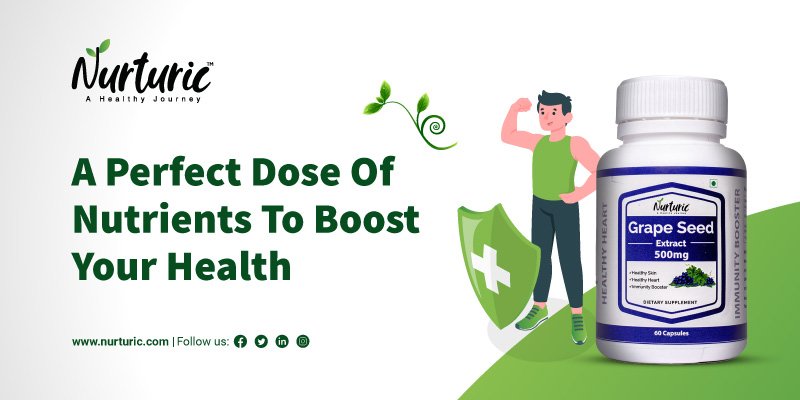
Nurturic Grape Seed Capsules, a 100 % organic extract, can be purchased if you look for organic and best grape seed extract. Nurturic Capsules are 100% Organic Capsules that will assist you in incorporating the extremely beneficial seeds into your daily diet!
Our Take
Are you ready to incorporate grape seed supplements into your diet? Choose from a variety of fresh grapes to reap the health benefits of this incredible berry. When you start consuming these tiny superfoods, you will never doubt their effectiveness again! Consume them whole as a snack, or add them to fruit bowls, refreshing summer salads, or supplements.
FAQ’s
1. Can grape seed extract cure cancer?
Yes. Proanthocyanidins in grape seeds have anticancer properties that help against colon cancer. Caco2 cells and inhibits cancer cell growth and development
2. Are grape seeds supplements safe?
Yes. It is safe when consumed in recommended dosage.
3. What are grape seed vitamins good for?
Grape seed extract, derived from the seeds of wine grapes, is used as a dietary supplement for various conditions, including venous insufficiency, wound healing, and inflammation reduction.
4. Is grape seed extract good for kidneys?
Yes. It can boost kidney function by lowering oxidative stress and inflammation.
5. Is grape seed a blood thinner?
Yes. Grape seed’s anticoagulant properties act as a blood thinner, increasing blood flow.
6. Is grape seed extract good for hair?
Yes. It nurtures the body with essential nutrients like vitamin E and linoleic acids, strengthening hair follicles and promoting stronger, lustrous hair growth.
7. Is grape seed good for your skin?
Yes. Grape seed is high in vitamins C and E and flavonoids, which may improve skin texture and delay the signs of ageing.
8. Is grape seed extract better than vitamin C?
Yes. Grapeseed is a more potent natural and powerful antioxidant than Vitamins C and E because it is high in polyphenols. Specifically, proanthocyanidins (OPCs) protect against free radical damage and prevent certain cancers and diseases.
9. Does grape seed extract lower blood sugar?
Yes. When consumed in moderation, it helps to lower blood sugar and glucose levels. However, if you have diabetes, you should consult your doctor before incorporating it into your diet.
10. Is grape seed good for allergies?
Yes. It reduces histamine production, which may lessen the severity of nasal allergies. However, excessive consumption may result in allergies or skin rashes.




